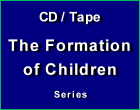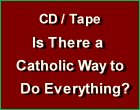Talks with Jan
 |
 |
 |
 |
 |
 |
 |
Francis’ Revolutionary Survey on the Family
My friend Jan wanted to discuss the survey Francis is sending out to ask Catholics about homosexual sex, abortion, contraception and giving Communion to the divorced and re-married.
She was speaking about the 39 questions sent to parishes around the world in preparation of next year’s Synod of Bishops, a “grassroots effort” that the press is heralding as unprecedented for two reasons. First, it seeks input from rank-and-file Catholics in order to know how to address moral issues. Second, it polls on issues that would have been considered off-limits in the past.
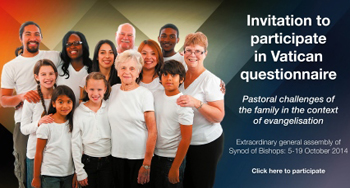 Jan asked: “Isn’t this a step to implant democracy in the Church, asking for input on questions that really shouldn’t be sent at all for the faithful to decide?” She spoke with a tone of triumph, pleased to have seen through the latest Vatican ruse to destroy both the hierarchical structure and the moral doctrine of the Church.
Jan asked: “Isn’t this a step to implant democracy in the Church, asking for input on questions that really shouldn’t be sent at all for the faithful to decide?” She spoke with a tone of triumph, pleased to have seen through the latest Vatican ruse to destroy both the hierarchical structure and the moral doctrine of the Church.
I believe my friend Jan was right on mark, and I have only a few comments to add to her analysis.
What is most revolutionary and significant about this survey, in my opinion, is the framing of the questions. They are posed in a way that seems to legitimize activities that were always held to be unquestionably wrong. Regardless of the results of this survey, topics like homosexual marriage and cohabitation before marriage are now open to discussion.
The framing of the questions
The nine sections of this survey are filled with loaded questions, that is, questions designed to change minds by coercive stealth. That is to say, it is much more than a questionnaire. It is a psychological progressivist assault that introduces into every Catholic parish tolerance toward “irregular” living situations and a “modern” concept of family.
Instead of affirming Church teaching on marriage according to the Natural Law, Section 2 challenges it by “suggesting” other ways of forming a family can be discussed.
One such question asks: “How is the theory and practice of natural law in the union between man and woman challenged in light of the formation of a family? How is it proposed and developed in civil and Church institutions?”
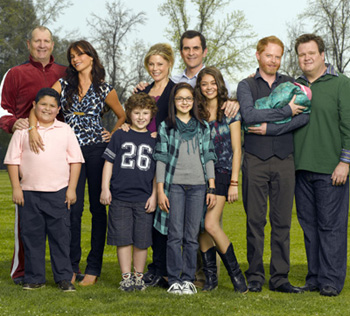 Now, everybody knows that, in today’s society, natural law has been broken by the practice of contraception and abortion and that many States approve these practices. The implication, therefore, is that the Church should be seeking new interpretations of natural law that coincide with civil legislation.
Now, everybody knows that, in today’s society, natural law has been broken by the practice of contraception and abortion and that many States approve these practices. The implication, therefore, is that the Church should be seeking new interpretations of natural law that coincide with civil legislation.
The pressure for adaptations becomes stronger in the sections on pastoral care in difficult marital situations and same sex unions (sections 4 and 5). Catholics are asked whether extra-marital cohabitation, divorce and remarriage and same-sex marriages are “pastoral realities” in their churches. Then it asks, “Do ministries exist to attend to these cases?” The obvious response is that such ministries should, nay, must exist to respond to these “needs” of the times.
Another question: "How is God's mercy proclaimed to separated couples and those divorced and remarried and how does the Church put into practice her support for them in their journey of faith?" Do persons in such situations “feel marginalized or suffer from the impossibility of receiving the Sacraments?”
The obvious implication is that no one should feel left out or feel any negative vibes. This question also infers that to enforce true Catholic Morals is not practicable. Instead of looking for answers that would try to stem the tide of extra-marital cohabitation, divorces, and homosexuality among Catholics, the survey makes it clear that the "correct" response is to try to accommodate persons who “choose” sinful lifestyles.
I invite my readers to peruse the questions in the nine sections below. In my opinion they clearly induce Catholics to tolerate homosexuals, cohabitating couples, divorced and remarried Catholics. The message is not that the faithful must apply Catholic Morals, but that concessions must be made to civil laws in order for the Church to remain relevant.
The damage is done
The media is calling the survey unusual because of the “non-judgmental nature of the questions,” signaling a greater openness to all and the possibility of coming changes in Church teaching on all the addressed issues.
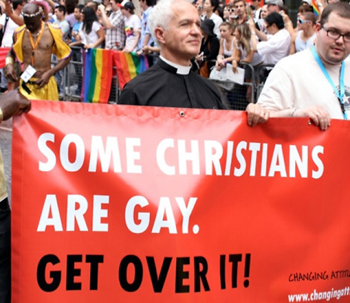 In the Vatican some voices have stepped in “to guarantee” that Francis is not planning any big changes and that the Church “remains loyal to the vision of the family where a man and a woman join together and procreate children." (“Pope Francis’ Latest Surprise,” BBC News online)
In the Vatican some voices have stepped in “to guarantee” that Francis is not planning any big changes and that the Church “remains loyal to the vision of the family where a man and a woman join together and procreate children." (“Pope Francis’ Latest Surprise,” BBC News online)
But, in my opinion, this survey has started the official change of Catholic Morals. By its method - never before the Vatican needed the opinions of the faithful to know what is morally condemnable - it has officially started to change the Morals. It is the Church tweaking her teachings to be accepted by the modern revolutionary times.
This attitude tells the pastoral centers at all the churches around the world to welcome homosexuals and lesbians.
It suggests, priests should not be denying sacraments to Catholics who have divorced and remarried.
It implies that cohabitating unmarried or homosexual unions should be accepted by Catholics since there are so many of them. All of these things used to be considered closed issues. Now they officially became open, thanks to the Vatican survey.
Vatican questionnaire for the synod on the family
Q1. The Diffusion of the Teachings on the Family in Sacred Scripture and the Church’s Magisterium
1. Question 1a: Describe how the Catholic Church's teachings on the value of the family contained in the Bible, Gaudium et Spes, Familiaris Consortio and other documents of the post-conciliar Magisterium is understood by people today? What formation is given to our people on the Church's teaching on family life?
2. Question 1b: In those cases where the Church's teaching is known, is it accepted fully or are there difficulties in putting it into practice? If so, what are they?
3. Question 1c: How widespread is the Church's teaching in pastoral programmes at the national, diocesan and parish levels? What catechesis is done on the family?
4. Question 1d: To what extent — and what aspects in particular — is this teaching actually known, accepted, rejected and/or criticized in areas outside the Church? What are the cultural factors which hinder the full reception of the Church’s teaching on the family?
Q2. Marriage according to the Natural Law
1. Question 2a: What place does the idea of the natural law have in the cultural areas of society: in institutions, education, academic circles and among the people at large? What anthropological ideas underlie the discussion on the natural basis of the family?
2. Question 2b: Is the idea of the natural law in the union between a man and a woman commonly accepted as such by the baptized in general?
3. Question 2c: How is the theory and practice of natural law in the union between man and woman challenged in light of the formation of a family? How is it proposed and developed in civil and Church institutions?
4. Question 2d: In cases where non-practicing Catholics or declared non-believers request the celebration of marriage, describe how this pastoral challenge is dealt with?
Q3. The Pastoral Care of the Family in Evangelization
1. Question 3a: What experiences have emerged in recent decades regarding marriage preparation? What efforts are there to stimulate the task of evangelization of the couple and of the family? How can an awareness of the family as the "domestic Church" be promoted?
2. Question 3b: How successful have you been in proposing a manner of praying within the family which can withstand life’s complexities and today’s culture?
3. Question 3c: In the current generational crisis, how have Christian families been able to fulfill their vocation of transmitting the faith?
4. Question 3d: In what way have the local Churches and movements on family spirituality been able to create ways of acting which are exemplary?
5. Question 3e: What specific contribution can couples and families make to spread a credible and holistic idea of the couple and the Christian family today?
6. Question 3f: What pastoral care has the Church provided in supporting couples in formation and couples in crisis situations?
Q4. Pastoral Care in Certain Difficult Marital Situations
1. Question 4a: Is cohabitation ad experimentum a pastoral reality in your particular Church? Can you approximate a percentage?
2. Question 4b: Do unions which are not recognized either religiously or civilly exist? Are reliable statistics available?
3. Question 4c: Are separated couples and those divorced and remarried a pastoral reality in your particular Church? Can you approximate a percentage? How do you deal with this situation in appropriate pastoral programmes?
4. Question 4d: In all the above cases, how do the baptized live in this irregular situation? Are they aware of it? Are they simply indifferent? Do they feel marginalized or suffer from the impossibility of receiving the sacraments?
5. Question 4e: What questions do divorced and remarried people pose to the Church concerning the Sacraments of the Eucharist and of Reconciliation? Among those persons who find themselves in these situations, how many ask for these sacraments?
6. Question 4f: Could a simplification of canonical practice in recognizing a declaration of nullity of the marriage bond provide a positive contribution to solving the problems of the persons involved? If yes, what form would it take?
7. Question 4g: Does a ministry exist to attend to these cases? Describe this pastoral ministry? Do such programmes exist on the national and diocesan levels? How is God’s mercy proclaimed to separated couples and those divorced and remarried and how does the Church put into practice her support for them in their journey of faith?
Q5. On Unions of Persons of the Same Sex
1. Question 5a: Is there a law in your country recognizing civil unions for people of the same-sex and equating it in some way to marriage?
2. Question 5b: What is the attitude of the local and particular Churches towards both the State as the promoter of civil unions between persons of the same sex and the people involved in this type of union?
3. Question 5c: What pastoral attention can be given to people who have chosen to live in these types of union?
4. Question 5d: In the case of unions of persons of the same sex who have adopted children, what can be done pastorally in light of transmitting the faith?
Q6. The Education of Children in Irregular Marriages
1. Question 6a: What is the estimated proportion of children and adolescents in these cases, as regards children who are born and raised in regularly constituted families?
2. Question 6b: How do parents in these situations approach the Church? What do they ask? Do they request the sacraments only or do they also want catechesis and the general teaching of religion?
3. Question 6c: How do the particular Churches attempt to meet the needs of the parents of these children to provide them with a Christian education?
4. Question 6d: What is the sacramental practice in these cases: preparation, administration of the sacrament and the accompaniment?
Q7. The Openness of the Married Couple to Life
1. Question 7a: What knowledge do Christians have today of the teachings of Humanae vitae on responsible parenthood? Are they aware of how morally to evaluate the different methods of family planning? Could any insights be suggested in this regard pastorally?
2. Question 7b: Is this moral teaching accepted? What aspects pose the most difficulties in a large majority of couple’s accepting this teaching?
3. Question 7c: What natural methods are promoted by the particular Churches to help spouses put into practice the teachings of Humanae vitae?
4. Question 7d: What is your experience on this subject in the practice of the Sacrament of Penance and participation at the Eucharist?
5. Question 7e: What differences are seen in this regard between the Church’s teaching and civic education?
6. Question 7f: How can a more open attitude towards having children be fostered? How can an increase in births be promoted?
Q8. The Relationship between the Family and the Person
1. Question 8a: Jesus Christ reveals the mystery and vocation of the human person. How can the family be a privileged place for this to happen?
2. Question 8b: What critical situations in the family today can obstruct a person’s encounter with Christ?
3. Question 8c: To what extent do the many crises of faith which people can experience affect family life?
Q9. Other Challenges and Proposals
1. Question 9: What other challenges or proposals related to the topics in the above questions do you consider urgent and useful to treat?
A copy of the questionnaire is at this link.

She was speaking about the 39 questions sent to parishes around the world in preparation of next year’s Synod of Bishops, a “grassroots effort” that the press is heralding as unprecedented for two reasons. First, it seeks input from rank-and-file Catholics in order to know how to address moral issues. Second, it polls on issues that would have been considered off-limits in the past.

The "invitation" is posted online
I believe my friend Jan was right on mark, and I have only a few comments to add to her analysis.
What is most revolutionary and significant about this survey, in my opinion, is the framing of the questions. They are posed in a way that seems to legitimize activities that were always held to be unquestionably wrong. Regardless of the results of this survey, topics like homosexual marriage and cohabitation before marriage are now open to discussion.
The framing of the questions
The nine sections of this survey are filled with loaded questions, that is, questions designed to change minds by coercive stealth. That is to say, it is much more than a questionnaire. It is a psychological progressivist assault that introduces into every Catholic parish tolerance toward “irregular” living situations and a “modern” concept of family.
Instead of affirming Church teaching on marriage according to the Natural Law, Section 2 challenges it by “suggesting” other ways of forming a family can be discussed.
One such question asks: “How is the theory and practice of natural law in the union between man and woman challenged in light of the formation of a family? How is it proposed and developed in civil and Church institutions?”

Left, a divorced man 're-married'; center, a normal family; right, a homosexual couple
The pressure for adaptations becomes stronger in the sections on pastoral care in difficult marital situations and same sex unions (sections 4 and 5). Catholics are asked whether extra-marital cohabitation, divorce and remarriage and same-sex marriages are “pastoral realities” in their churches. Then it asks, “Do ministries exist to attend to these cases?” The obvious response is that such ministries should, nay, must exist to respond to these “needs” of the times.
Another question: "How is God's mercy proclaimed to separated couples and those divorced and remarried and how does the Church put into practice her support for them in their journey of faith?" Do persons in such situations “feel marginalized or suffer from the impossibility of receiving the Sacraments?”
The obvious implication is that no one should feel left out or feel any negative vibes. This question also infers that to enforce true Catholic Morals is not practicable. Instead of looking for answers that would try to stem the tide of extra-marital cohabitation, divorces, and homosexuality among Catholics, the survey makes it clear that the "correct" response is to try to accommodate persons who “choose” sinful lifestyles.
I invite my readers to peruse the questions in the nine sections below. In my opinion they clearly induce Catholics to tolerate homosexuals, cohabitating couples, divorced and remarried Catholics. The message is not that the faithful must apply Catholic Morals, but that concessions must be made to civil laws in order for the Church to remain relevant.
The damage is done
The media is calling the survey unusual because of the “non-judgmental nature of the questions,” signaling a greater openness to all and the possibility of coming changes in Church teaching on all the addressed issues.

A priest marches with the "Changing Attitudes" group in a LGBT parade
But, in my opinion, this survey has started the official change of Catholic Morals. By its method - never before the Vatican needed the opinions of the faithful to know what is morally condemnable - it has officially started to change the Morals. It is the Church tweaking her teachings to be accepted by the modern revolutionary times.
This attitude tells the pastoral centers at all the churches around the world to welcome homosexuals and lesbians.
It suggests, priests should not be denying sacraments to Catholics who have divorced and remarried.
It implies that cohabitating unmarried or homosexual unions should be accepted by Catholics since there are so many of them. All of these things used to be considered closed issues. Now they officially became open, thanks to the Vatican survey.
Q1. The Diffusion of the Teachings on the Family in Sacred Scripture and the Church’s Magisterium
1. Question 1a: Describe how the Catholic Church's teachings on the value of the family contained in the Bible, Gaudium et Spes, Familiaris Consortio and other documents of the post-conciliar Magisterium is understood by people today? What formation is given to our people on the Church's teaching on family life?
2. Question 1b: In those cases where the Church's teaching is known, is it accepted fully or are there difficulties in putting it into practice? If so, what are they?
3. Question 1c: How widespread is the Church's teaching in pastoral programmes at the national, diocesan and parish levels? What catechesis is done on the family?
4. Question 1d: To what extent — and what aspects in particular — is this teaching actually known, accepted, rejected and/or criticized in areas outside the Church? What are the cultural factors which hinder the full reception of the Church’s teaching on the family?
Q2. Marriage according to the Natural Law
1. Question 2a: What place does the idea of the natural law have in the cultural areas of society: in institutions, education, academic circles and among the people at large? What anthropological ideas underlie the discussion on the natural basis of the family?
2. Question 2b: Is the idea of the natural law in the union between a man and a woman commonly accepted as such by the baptized in general?
3. Question 2c: How is the theory and practice of natural law in the union between man and woman challenged in light of the formation of a family? How is it proposed and developed in civil and Church institutions?
4. Question 2d: In cases where non-practicing Catholics or declared non-believers request the celebration of marriage, describe how this pastoral challenge is dealt with?
Q3. The Pastoral Care of the Family in Evangelization
1. Question 3a: What experiences have emerged in recent decades regarding marriage preparation? What efforts are there to stimulate the task of evangelization of the couple and of the family? How can an awareness of the family as the "domestic Church" be promoted?
2. Question 3b: How successful have you been in proposing a manner of praying within the family which can withstand life’s complexities and today’s culture?
3. Question 3c: In the current generational crisis, how have Christian families been able to fulfill their vocation of transmitting the faith?
4. Question 3d: In what way have the local Churches and movements on family spirituality been able to create ways of acting which are exemplary?
5. Question 3e: What specific contribution can couples and families make to spread a credible and holistic idea of the couple and the Christian family today?
6. Question 3f: What pastoral care has the Church provided in supporting couples in formation and couples in crisis situations?
Q4. Pastoral Care in Certain Difficult Marital Situations
1. Question 4a: Is cohabitation ad experimentum a pastoral reality in your particular Church? Can you approximate a percentage?
2. Question 4b: Do unions which are not recognized either religiously or civilly exist? Are reliable statistics available?
3. Question 4c: Are separated couples and those divorced and remarried a pastoral reality in your particular Church? Can you approximate a percentage? How do you deal with this situation in appropriate pastoral programmes?
4. Question 4d: In all the above cases, how do the baptized live in this irregular situation? Are they aware of it? Are they simply indifferent? Do they feel marginalized or suffer from the impossibility of receiving the sacraments?
5. Question 4e: What questions do divorced and remarried people pose to the Church concerning the Sacraments of the Eucharist and of Reconciliation? Among those persons who find themselves in these situations, how many ask for these sacraments?
6. Question 4f: Could a simplification of canonical practice in recognizing a declaration of nullity of the marriage bond provide a positive contribution to solving the problems of the persons involved? If yes, what form would it take?
7. Question 4g: Does a ministry exist to attend to these cases? Describe this pastoral ministry? Do such programmes exist on the national and diocesan levels? How is God’s mercy proclaimed to separated couples and those divorced and remarried and how does the Church put into practice her support for them in their journey of faith?
Q5. On Unions of Persons of the Same Sex
1. Question 5a: Is there a law in your country recognizing civil unions for people of the same-sex and equating it in some way to marriage?
2. Question 5b: What is the attitude of the local and particular Churches towards both the State as the promoter of civil unions between persons of the same sex and the people involved in this type of union?
3. Question 5c: What pastoral attention can be given to people who have chosen to live in these types of union?
4. Question 5d: In the case of unions of persons of the same sex who have adopted children, what can be done pastorally in light of transmitting the faith?
Q6. The Education of Children in Irregular Marriages
1. Question 6a: What is the estimated proportion of children and adolescents in these cases, as regards children who are born and raised in regularly constituted families?
2. Question 6b: How do parents in these situations approach the Church? What do they ask? Do they request the sacraments only or do they also want catechesis and the general teaching of religion?
3. Question 6c: How do the particular Churches attempt to meet the needs of the parents of these children to provide them with a Christian education?
4. Question 6d: What is the sacramental practice in these cases: preparation, administration of the sacrament and the accompaniment?
Q7. The Openness of the Married Couple to Life
1. Question 7a: What knowledge do Christians have today of the teachings of Humanae vitae on responsible parenthood? Are they aware of how morally to evaluate the different methods of family planning? Could any insights be suggested in this regard pastorally?
2. Question 7b: Is this moral teaching accepted? What aspects pose the most difficulties in a large majority of couple’s accepting this teaching?
3. Question 7c: What natural methods are promoted by the particular Churches to help spouses put into practice the teachings of Humanae vitae?
4. Question 7d: What is your experience on this subject in the practice of the Sacrament of Penance and participation at the Eucharist?
5. Question 7e: What differences are seen in this regard between the Church’s teaching and civic education?
6. Question 7f: How can a more open attitude towards having children be fostered? How can an increase in births be promoted?
Q8. The Relationship between the Family and the Person
1. Question 8a: Jesus Christ reveals the mystery and vocation of the human person. How can the family be a privileged place for this to happen?
2. Question 8b: What critical situations in the family today can obstruct a person’s encounter with Christ?
3. Question 8c: To what extent do the many crises of faith which people can experience affect family life?
Q9. Other Challenges and Proposals
1. Question 9: What other challenges or proposals related to the topics in the above questions do you consider urgent and useful to treat?
A copy of the questionnaire is at this link.

Posted November 25, 2013
______________________
______________________



